3007
Location-based App Development - Ideas, Technology, and Tips to Get Started
03 Mar, 2021
6 min read
3007
03 Mar, 2021
6 min read
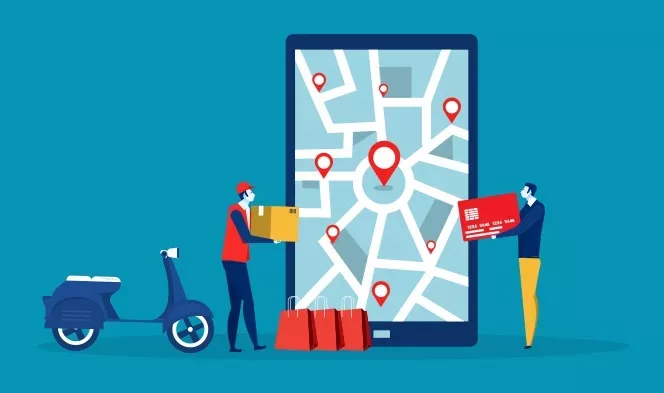
Have you yet heard about the four elephants on which the mobile app world is resting now?
They are – Touchscreen sensors, 5G, GPS, and Camera functionality. If you are planning to build a mobile app, you ought to take advantage of these technologies.
In this post, we will focus on location-based Android/iOS app development and use cases for location-based apps. But first,
You probably know this but to refresh your memory – Geolocation refers to finding the geographical location of connected electronic devices.
How does it work?
A smartphone comes with a stock feature – GPS. the communication between the smartphone and the satellite takes place using geolocation technology. A geolocation-based mobile app forms an interaction funnel between the two entities, gathering location data at different times. This gathered location helps to determine the behavior of the electronic device.
As somebody who runs a business online, you know that it is easy to attract traffic to your website but converting that traffic is no breeze. And here’s where the geolocation data can help you. You can utilize the gained data to devise your businesses’ customer acquisition strategy and open doors for huge opportunities.
The advent of digitalization has led to an increased need for location-based services. The location-based services market size was $28.95 billion in 2019. Experts expect the market size to reach $183.81 billion by 2027, growing at a CAGR of 26.3% from 2020 to 2027.
From collecting data to offering personalized products, geolocation has countless benefits for your business.
It is crucial for retail businesses to connect with customers across all touchpoints. To improve customer engagement and deliver personalized experiences, brands are offering location-based features. Geolocation helps brands to understand customer behavior, improve retention rate and loyalty.
Sephora’s store companion is a good example of geofencing. Using the app, the brand targets its most loyal customers the moment they enter the store. The app gives information on their past purchases, product recommendations, offers, product availability, and more.
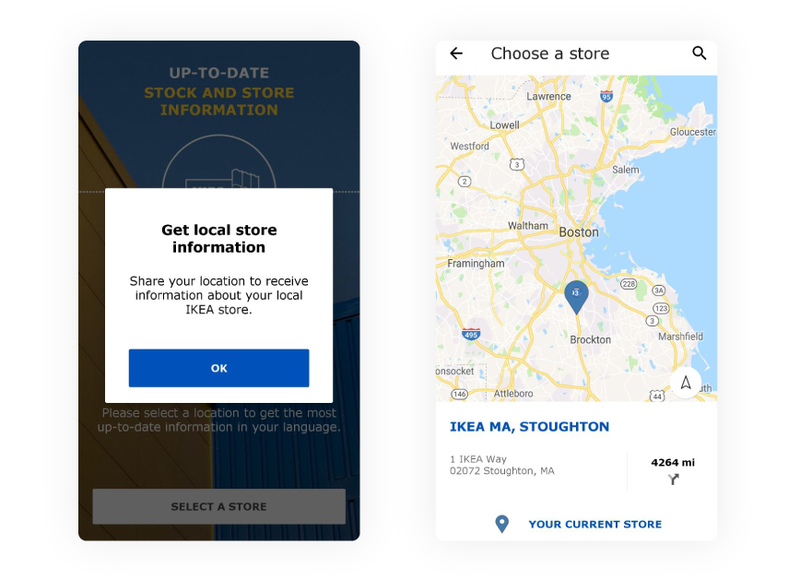
Retailers like Walmart and Ikea use GPS data to help customers find the nearest store, or choose a convenient pickup/delivery location.
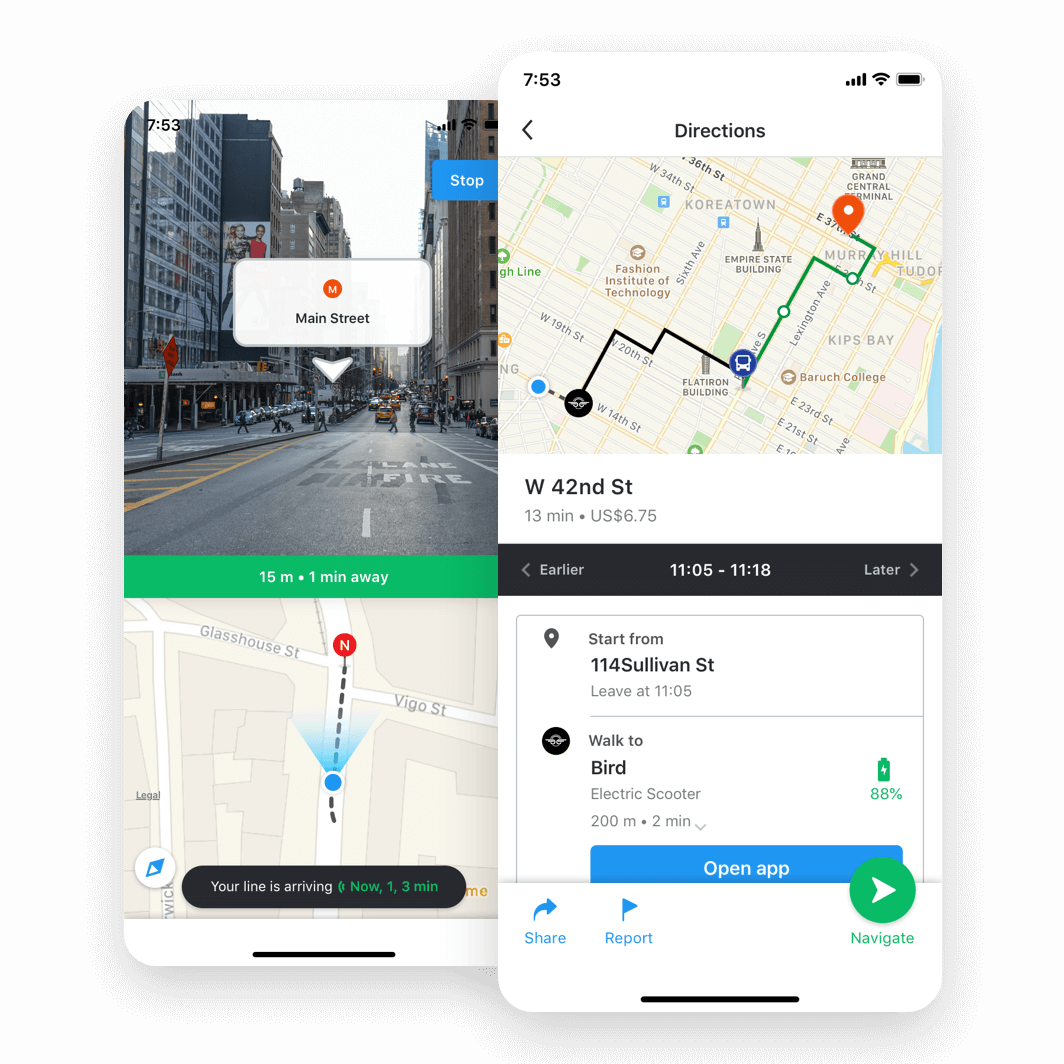
GPS has fully transformed the transportation industry. The most basic use of GPS tracking in coordination is to keep a track of where the vehicles are on the map. Geolocation can help logistics business owners plan a route, monitor fuel/vehicles, and more.
Moovit is Israel-based mobility as a service provider and journey planner app. It uses GPS data from vehicles to give step-by-step directions with live guidance, informs passengers about delays and arrivals, and uses AR to enable users to visualize their bus/train stop.
GPS app is a boon for business owners dealing with location-dependent services. If you are offering on-demand services here’s how a GPS solution can help
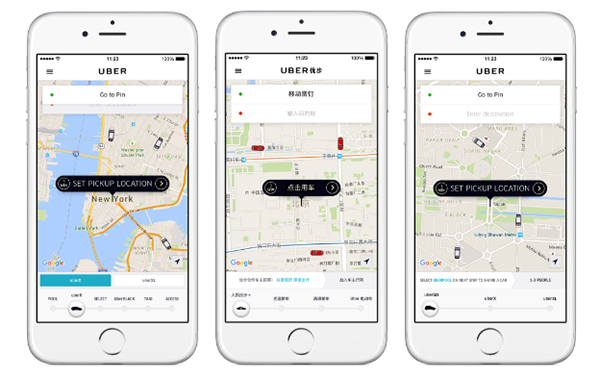
One of the most popular on-demand apps, Uber, uses location to pair passengers with nearby drivers. It also allows users to track the driver in real-time.
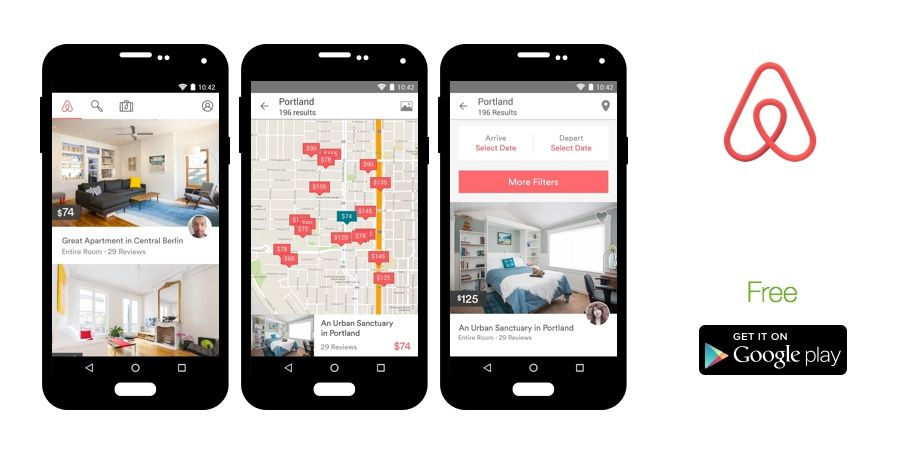
The popularity of geolocation technology has encouraged travel businesses to reach and connect with audiences using location-based apps. Developing a geolocation app can be a gamechanger for hotel business by sending context-triggered notifications to guests as soon as they enter your hotel premises.
You can offer additional services like on-site navigation, self-check-in/out, indoor navigation to enable electronic keys, etc. Apps like Airbnb, Expedia, Trip Advisor, etc. suggest the nearest apartments based on a set location.
Dating apps like Tinder are using the location feature, where users can know the location of the other individual. By using geotags on Instagram/Snapchat, users can see people nearby and connect with them based on their location. Users can see where their friends are gathering and can get information about what’s happening at a local hotspot.
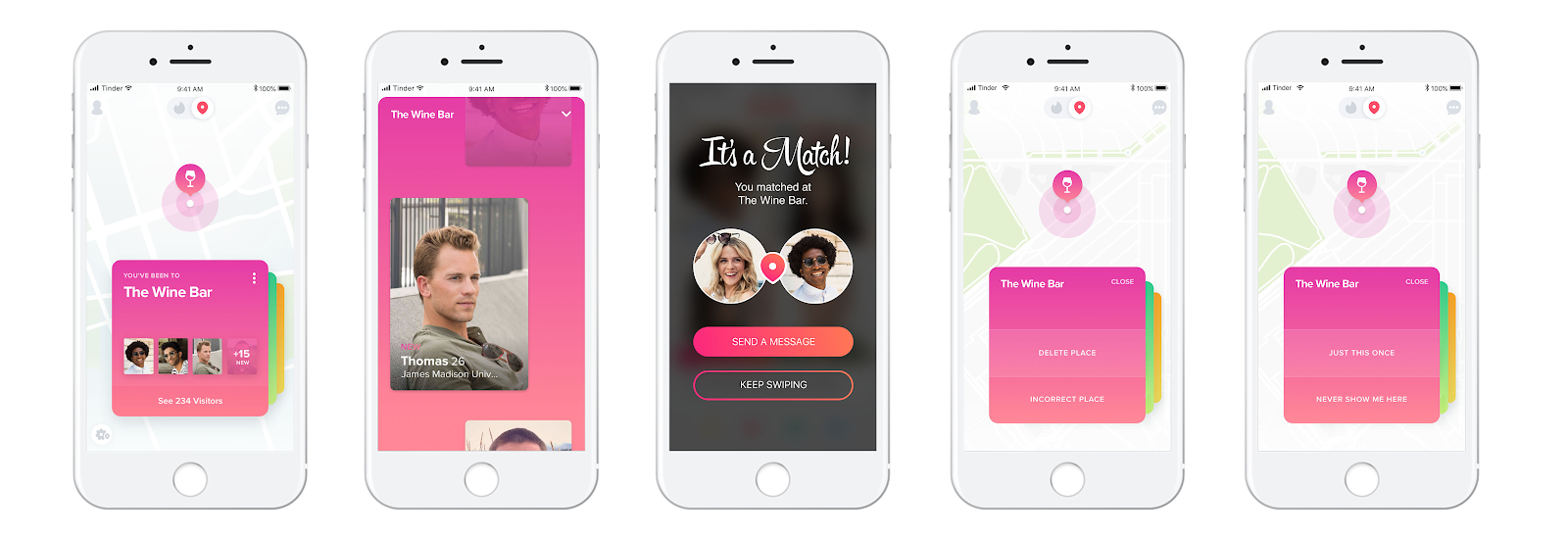
If you are a fitness trainer, a location-based GPS app can take you to new heights. You can provide users to track jogging routes, share achievements on social media platforms by attaching a map with a route. Apps like Nike+, and Runtastic access your cell phone’s GPS data to track speed, map your routes, and connect you with fellow runners near your location.
Remember Pokémon Go? How people can “catch Pokémon” throughout the city. This game ushered in the use of location features in the gaming industry. Many gaming applications allow users to have real-time interaction with the game.
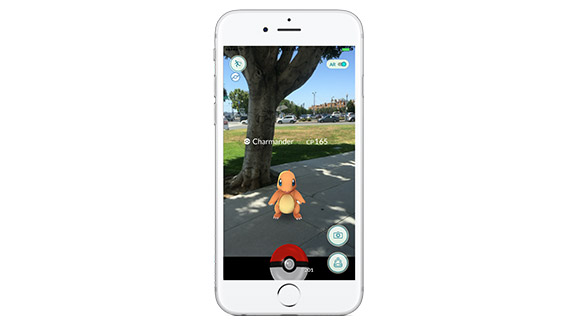
There are a few technologies that enable Android/iOS app development. These are mainly outdoor technologies and indoor technologies. Let’s have a look at each
Read More: Android vs Ios Development
When choosing the right method during location-based Android/iOS app development, you need to ask yourself the following questions:
To build a geolocation app, you need APIs which contain the main tools that support the geolocation functionality. APIs reduce the cost and time of location-based app development.
You will require two APIs – (a) to define user location and (b) to put a location on the map.
Let’s understand this with an example. Let’s say you want a geolocation feature that helps users find a nearby clothing store. In this case, you will need the API to identify the clothing stores on the map. But if you wish to offer a custom location service, you will need to integrate the API that displays the exact location on the map.
Based on your requirement, you need to use one of the four most popular Google Maps APIs – Google Maps API, Google Places API, Google Maps Directions, Google Distance Matrix API. Google Maps is cross-platform, which works well with Android, iPhone, and Windows. One of the best ways to access the Google Maps APIs is by using Rapid. Rapid’s intuitive platform makes it easy to integrate APIs into your application with just a few clicks.
Regardless of the huge advantages of location-based technology, there are potential hazards to it. Hackers can learn an astonishing amount of personal details just by examining the location data from smartphones. That’s why users, almost 29% of Americans over 50, are cautious about granting geolocation permission to an app.
At Biztech, application security is our priority. We are an ISO:27001 security compliant company, and we protect your source code and data at any cost. Moreover, our decisions are goal-centric where we give engagement the top priority along with user experience. Tell us about your app idea and we will help you craft growth-driven solutions.
We design, develop, and market. Let’s get in touch to understand your business requirements.
All product and company names are trademarks™, registered® or copyright© trademarks of their respective holders. Use of them does not imply any affiliation with or endorsement by them.
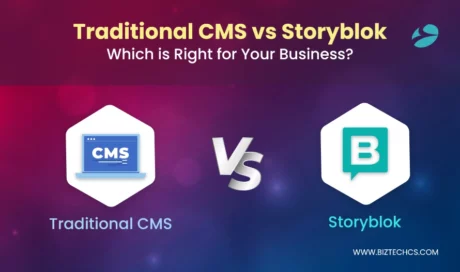
Storyblok
19567
By Devik Gondaliya
02 Apr, 2025
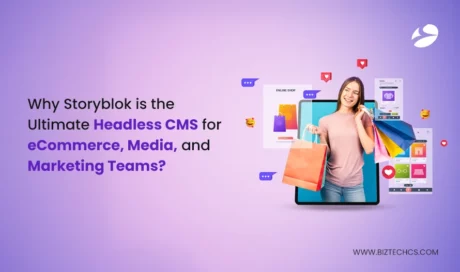
Storyblok
20555
By Devik Gondaliya
01 Apr, 2025
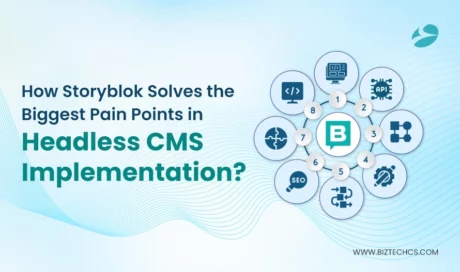
Storyblok
21280
By Devik Gondaliya
27 Mar, 2025